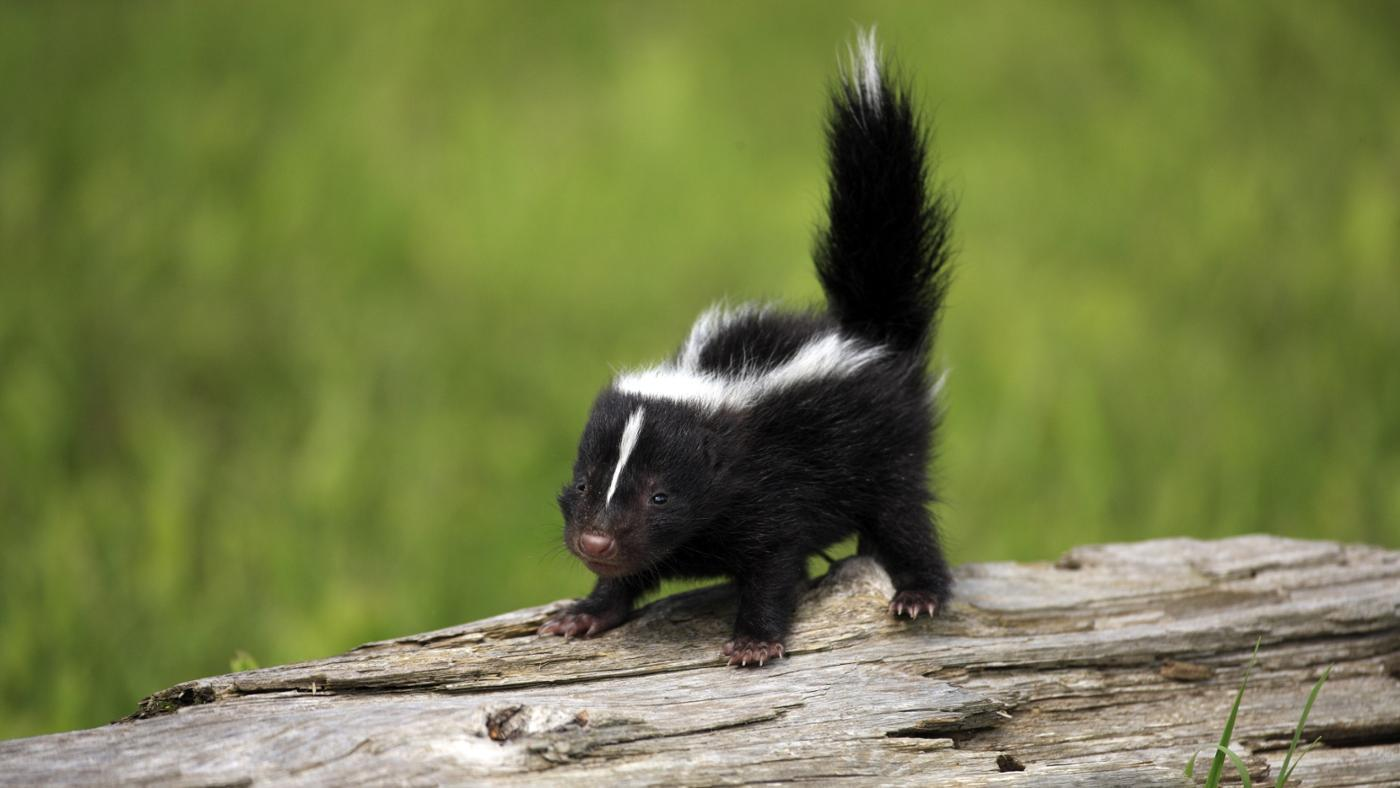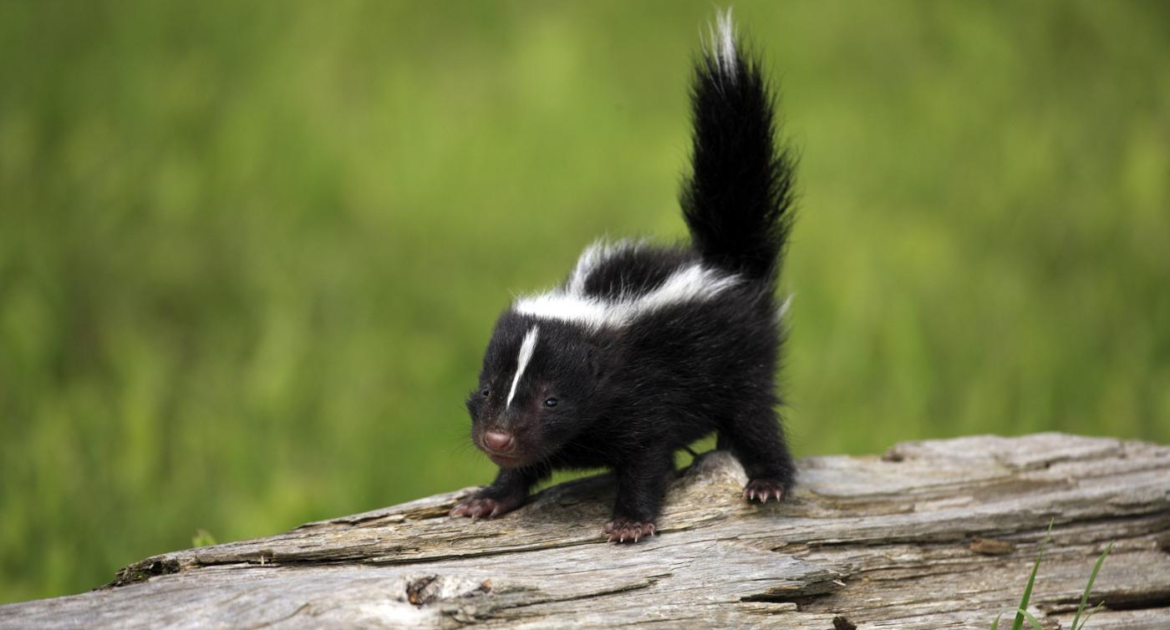Skunks are known for two things: their distinctive black and white patterns, and their unusual, scent-based defensive mechanism. However, there is so much more to skunks than this. They are clever animals that can form close bonds with other skunks and even people. In fact, some people even keep them as pets. While the idea of keeping an animal that could coat your home with an unpleasant smell if it gets spooked may seem like a bad idea, you may be surprised to learn that pet skunks are typically descented.
Skunk Scents
Skunks use their scents to protect themselves from predators. The spray can be very startling for would-be attackers and is quite repulsive. In the wild, unpleasant smells are often given off by plants and animals that would be toxic to eat – and by plants and animals that want to trick potential predators into thinking that they are toxic.
Interestingly, most meat-eating mammals can produce a similar substance to the skunk’s spray. However, unlike other mammals, skunks can aim their sprays and use them as potent defensive weapons.
Cleaning up skunk spray from your home, your pet, or even yourself can be quite challenging. The oily substance can require a lot of soap and scrubbing to fully clean. The secret to pet skunks is that they lack the ability to spray this foul substance.
Descented Skunks
If a skunk is a pet, it likely doesn’t need its characteristic “weapon” to keep itself safe. Pets are usually kept in environments that are exceptionally safe. Many skunk owners choose to have the scent glands removed when it is between two and five weeks of age. This is a relatively simple and safe procedure. Many people consider this to be a little different than neutering a pet. However, some argue that it is inhumane to deprive an animal of the defenses it may instinctively want to use when threatened, even if it doesn’t really need it.
Part of the debate arises from the fact that skunks would be in significant danger if they escaped or got lost. Unlike cats, dogs, and some other common pets, skunks don’t have a homing instinct that will help them easily return. If a pet skunk got out, it would be lost and without its main defense mechanism. Of course, with that mechanism, it may not be a viable option for a pet. Yes, it becomes a complex animal ethics topic, but the underlying message still remains that wildlife should stay in the wild.
Can Skunks Actually Be Good as a Pet?
Whether descented or not, skunks can be very good pets. They are naturally quite social. In fact, they tend to require a lot of love, attention, and play to remain happy and healthy. However, they are also somewhat challenging. They have eclectic diets and are relatively demanding. You would need to be ready for a more difficult ownership experience than that of a more traditional pet. Although you may think this is a task you are capable of handling it is never recommended to domesticate wild animals. There is a reason that they are a part of the wild, and it would be a disservice to the skunk to remove them from what they need to thrive.
Schedule Skunk Removal in Madison
One thing that is important to note is that skunks are relatively unlikely to have rabies. They are less likely to get it because other animals are afraid of that stinky spray. Of course, this doesn’t mean that you should go handling wild or unfamiliar skunks. That can still be a very risky proposition. It is much better to call in professionals such as the team at Skedaddle Humane Wildlife Control in Madison.
If you need skunk removal services or have any other wildlife problem, Skedaddle Humane Wildlife Control can help. We perform humane removals that are proven to be highly effective and designed to work harmoniously with the natural world. Contact our team in Madison to schedule an appointment.




